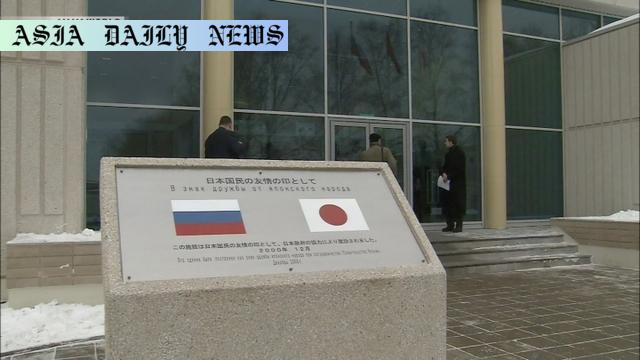Russia ends the intergovernmental memoranda on Japan Centers, citing sanctions and deteriorating relations.
- Russia halts intergovernmental agreements on Japan Centers.
- Japan Centers fostered business ties, language skills, and friendly relations.
- Russia cites Tokyo’s sanctions as the cause of this decision.
- Japan calls Russia’s unilateral suspension unacceptable.

Russia Terminates Japan Center Operations Amid Rising Tensions
Russia has officially announced the termination of its intergovernmental memoranda with Japan concerning the operation of Japan Centers. This decision, according to Russia’s foreign ministry, stems from Tokyo’s ‘unprecedented unfriendly steps,’ including sanctions against Russian leadership, citizens, and entire sectors of its economy. The centers, established with Japanese government backing since 1994, have been operational in six cities, including Moscow and Vladivostok, and are seen as symbols of Japan-Russia friendship.
The Role of Japan Centers in Bilateral Relations
Since their inception, the Japan Centers have played a pivotal role in nurturing human resources, providing business support, and organizing Japanese language courses. For nearly 30 years, they have been key to fostering cultural exchange and economic cooperation between the two nations. However, their future now hangs in limbo as Russia’s unilateral cessation of the memorandum may lead to their suspension.
Russia’s Reasons for the Decision
Russia has cited a series of sanctions imposed by Japan since February 2022 as the primary reason for halting the memorandum. These sanctions, according to the Russian foreign ministry, are contrary to the spirit of bilateral cooperation and have strained political ties to the point of necessitating such an action. The ministry emphasized its dissatisfaction with Japan’s policies towards Russia during this period of global political instability.
Japan’s Reaction to the Unilateral Decision
The Japanese government has expressed serious concern about Russia’s decision, calling it ‘unacceptable.’ Tokyo plans to engage in discussions to confirm details with Moscow, stressing its disappointment over a move that undermines mutual cooperation. These developments reflect the broader geopolitical challenges faced by both nations amidst the ongoing Russia-Ukraine war and increased international sanctions on Russia.
Potential Implications for Regional Stability
The termination of the Japan Centers memorandum could have broader implications for Asia-Pacific regional stability. The centers were not only sites of cultural exchange but also platforms for economic partnership. Their suspension could exacerbate tensions between two significant players in the region. Critics have argued that this move is yet another indication of the deteriorating diplomatic climate in the post-Ukraine conflict world order.
What’s Next for Japan-Russia Relations?
At this point, the future of Japan-Russia relations remains uncertain. While Japan is likely to explore diplomatic avenues to salvage the situation, the broader question of how these developments fit into the evolving dynamics of Asia-Europe relations remains. Both nations find themselves at a crossroads as they balance national interests against the need for cooperation in addressing shared challenges.
Conclusion
The termination of Japan Centers by Russia marks a significant turning point in their bilateral relationship. Once emblematic of goodwill, the centers now highlight the growing complexities and challenges facing international diplomacy in today’s fractured world.



Commentary
An Unfortunate but Predictable Shift
The decision by Russia to terminate the Japan Centers is an unfortunate but predictable outcome given the current geopolitical climate. The centers have long symbolized a rare bright spot in Japan-Russia relations, offering opportunities for collaboration and mutual understanding. However, global politics often takes precedence over cultural and economic partnerships.
A Reflection of Geopolitical Realities
Russia’s move reflects its dissatisfaction with the wave of sanctions imposed by Japan. While these sanctions are a direct response to Russia’s actions in Ukraine, they have clearly reverberated across other areas of Japan-Russia relations. Moscow’s decision highlights the fragility of international agreements in times of growing global polarization.
Broader Impacts on Future Diplomacy
This development poses a challenge for the future of diplomacy, not just between Japan and Russia, but also for other nations navigating relationships with both. The international community will keenly observe how this situation unfolds, as it may set a precedent for how economic and cultural agreements are handled in other strained bilateral relationships.
A Call for Dialogue and Resolution
While this move signifies a setback, it also presents an opportunity for both nations to engage in deeper dialogue. It is essential for diplomatic channels to remain open to prevent further deterioration. Collaboration and compromise, though difficult, are vital in restoring any sense of normalcy to this fractured relationship.